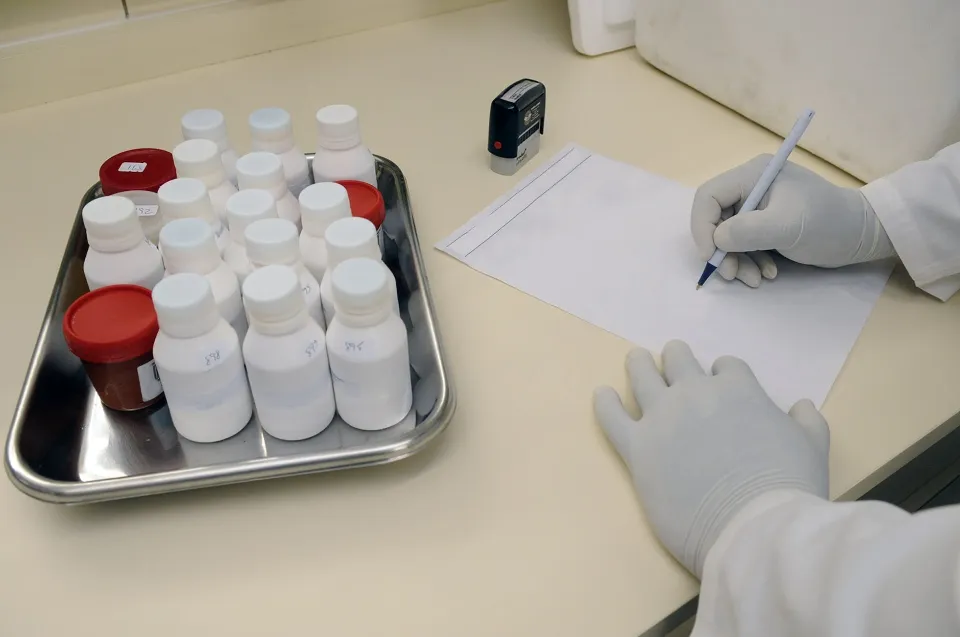Quetiapine, a medication used to calm the mind and assist in reducing psychotic thoughts, is marketed under the trade name Seroquel. Although the precise mechanism of action of Seroquel (quetiapine) is unknown, it is known to affect a variety of brain receptors. Some experts theorize that the mood-stabilizing effects of Seroquel may be brought on by antagonizing dopamine and serotonin receptors.
It can start working right away, but it typically takes two to three months to see its full impact.
If you are taking Seroquel, you might be curious about how long it takes to start working and the ideal dosage. Here we will answer common questions about Seroquel to help you make the most of your prescription.
What is Seroquel?
Seroquel, also known as quetiapine, is an antipsychotic medication that reduces or eliminates disturbing, upsetting, or psychotic thoughts – thoughts that can lead to “sleeplessness” or insomnia. Because of its sedating effects, Seroquel is often prescribed to people, who have a hard time “calming down” or relaxing.
Given that Seroquel has sedative effects, it’s crucial to regularly check your blood pressure while taking this medication. In the end, Seroquel changes your neurotransmitters’ (brain chemicals’) ability to communicate with one another, which impacts how you feel and act.
Children and adults 13 years of age and older with schizophrenia are treated with Seroquel. Bipolar disorder in adults and children 10 years of age and older are also treated with it. Seroquel may also be used in conjunction with antidepressants to treat the major depressive disorder in adults.

How Does Seroquel Work?
In order to reduce psychotic thoughts, improve mood, relax the body, and calm electrical impulses in the brain, Seroquel interacts with a variety of brain receptors. Regarding its precise role in the body and brain, however, researchers remain somewhat perplexed. According to some studies, Seroquel either slows down or stops the brain’s production of serotonin and dopamine.
Too much serotonin can cause wakefulness, delay sleep, and prevent you from entering a deeper sleep (REM sleep), whereas too much dopamine can prevent you from falling asleep by keeping you awake before bed.
Your mood is improved and your body and mind are calmed (disturbing thoughts, anxiety, or depression are reduced or eliminated) as a result of lowering these levels, allowing you to sleep soundly.
How Long Does Seroquel Work?
For schizophrenia, Seroquel typically takes two to three months to reach its full potential. In the initial 2 to 3 weeks, some symptoms may improve. These include hallucinations (seeing or hearing things that others don’t), delusions (an altered sense of reality), and lack of motivation.
The time frames for bipolar disorder symptoms are comparable. Around three weeks after starting Seroquel, manic (episodes of excessive energy) and mixed episodes—which include both manic and depressive symptoms—might get better. In roughly 8 weeks (or 2 months), depressive episodes seem to subside.
If you only take Seroquel once a day, taking it before bedtime might be the best option. Drowsiness is one of its main adverse effects. This is particularly valid when you first start taking the medication or soon after increasing your dose.
Seroquel taken before bed can reduce the amount of daytime sleepiness you experience. If your medical condition is causing insomnia, your doctor might also advise bedtime dosing.
Some people take Seroquel IR multiple times a day. In this situation, discuss taking a lower dose during the day and a higher dose at bedtime with your healthcare provider. Your provider may also suggest other dosage changes that they feel might be right for you.

Seroquel: Pros and Cons
Pros
Seroquel may help “quiet” psychotic and distressing thoughts in schizophrenics, over the age of 13. It may also reduce hallucinations and delusions, commonly found conditions involving psychosis, such as in schizophrenia. Seroquel also appears to be beneficial for children, over the age of 10, who are struggling with bipolar disorder.
One of the main benefits of Seroquel is its sedative properties. You may feel less anxious and more at ease as a result of it, which can also help to calm your mind. A “quiet” mind and a relaxed body can lead to longer and sounder sleep. Because Seroquel can make you sleepy, it is sometimes prescribed “off-label” to insomniacs desperate to get some sleep. Along with antidepressants, Seroquel is occasionally prescribed to treat anxiety and depression and enhance sleep.
Cons
If you are between the ages of 18 and 60, take no other medication or have no other medical conditions, side effects you are more likely to experience include:
- You might not be able to drive or operate machinery if you’re sedated. Avoid alcohol.
- Headache, drowsiness, irritability, constipation, weight gain, dry mouth, and blurred vision are some of the symptoms.
- Possibly will also result in insomnia, anxiety, or nervousness. Every antipsychotic drug, including Seroquel, carries a risk of tardive dyskinesia (uncontrollable, repetitive facial movements).
- Especially if taken with other medications that also raise the risk of bleeding, may increase the risk of bleeding.
- Should not be used in seniors with dementia-related psychosis because it increases their risk of death.
- may lower blood pressure, which may be especially noticeable when standing up from a sitting position, and may increase the risk of falling. Some people who take Seroquel may experience an increase in blood pressure.
Conclusion
Antipsychotic Seroquel aids in calming and relieving psychotic thoughts. Because it is so sedating, it is frequently administered; however, caution is required because it can also lower blood pressure.
FAQs
Should You Take Seroquel With Food?
Seroquel IR can be taken with or without food. If your doses make your stomach uncomfortable, try taking them with food. Seroquel XR can be taken on an empty stomach or with a light meal (less than 300 calories). Your body may absorb too much medication if you take Seroquel XR with a lot of food, which increases the possibility of side effects.
What Happens If You Miss a Dose of Seroquel?
If you miss a dose of When you remember, take your Seroquel. You should skip it if your next dose is almost due, though. Simply wait until the scheduled time to take the subsequent dose. Avoid taking more than one dose at once.



